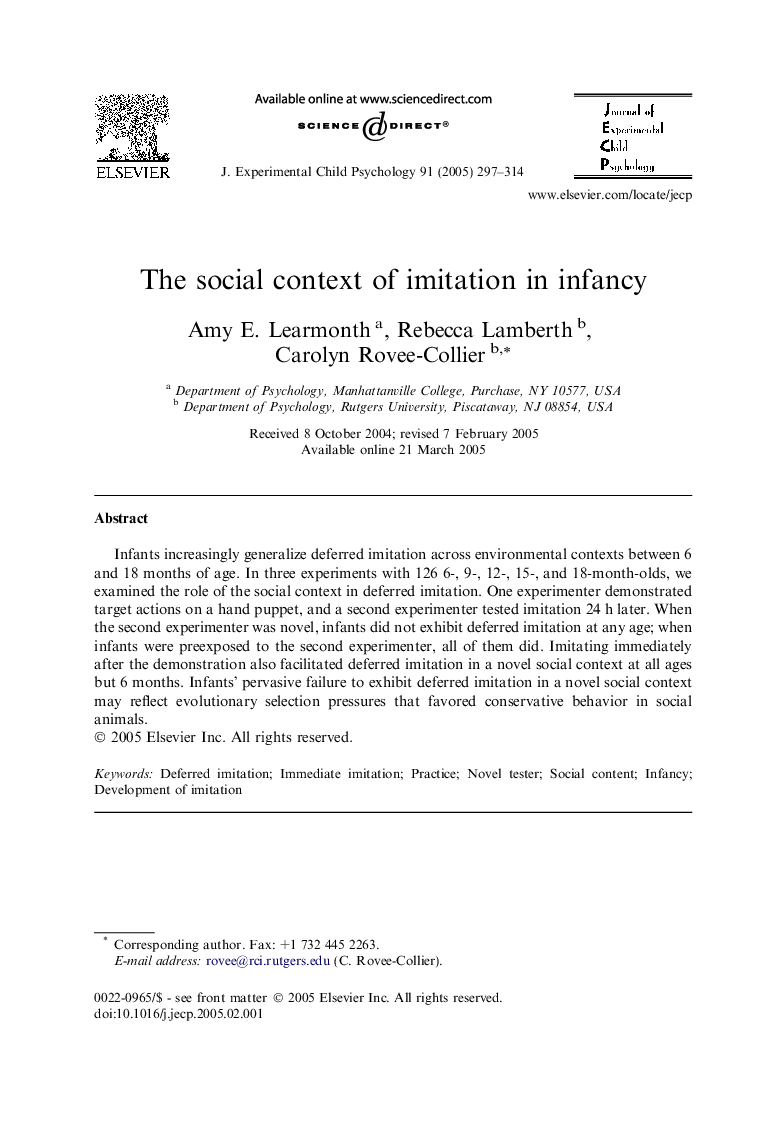| Article ID | Journal | Published Year | Pages | File Type |
|---|---|---|---|---|
| 10453164 | Journal of Experimental Child Psychology | 2005 | 18 Pages |
Abstract
Infants increasingly generalize deferred imitation across environmental contexts between 6 and 18 months of age. In three experiments with 126 6-, 9-, 12-, 15-, and 18-month-olds, we examined the role of the social context in deferred imitation. One experimenter demonstrated target actions on a hand puppet, and a second experimenter tested imitation 24Â h later. When the second experimenter was novel, infants did not exhibit deferred imitation at any age; when infants were preexposed to the second experimenter, all of them did. Imitating immediately after the demonstration also facilitated deferred imitation in a novel social context at all ages but 6 months. Infants' pervasive failure to exhibit deferred imitation in a novel social context may reflect evolutionary selection pressures that favored conservative behavior in social animals.
Keywords
Related Topics
Social Sciences and Humanities
Psychology
Developmental and Educational Psychology
Authors
Amy E. Learmonth, Rebecca Lamberth, Carolyn Rovee-Collier,
